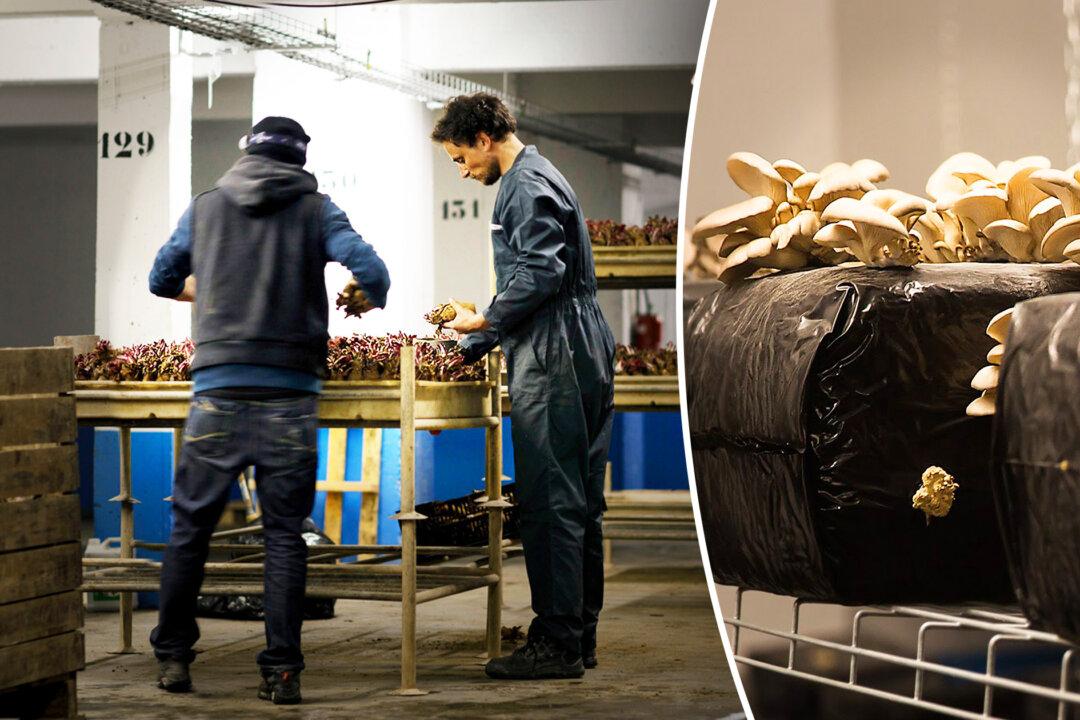A dormant underground parking lot in Paris has found new purpose serving as a farm for growing organic fungi. The low-light produce is then sold to local organic grocery stores, shortening the distance from farm to table a step further.
“La Caverne,” or “The Cave,” is one of three converted subterranean spaces founded together by agronomist Jean-Noël Gertz and Cycloponics, a startup specializing in repurposing disused urban undergrounds. Its dark, damp conditions are perfect for growing oyster, shiitake, and white button mushrooms: Cycloponics’s main crops.





